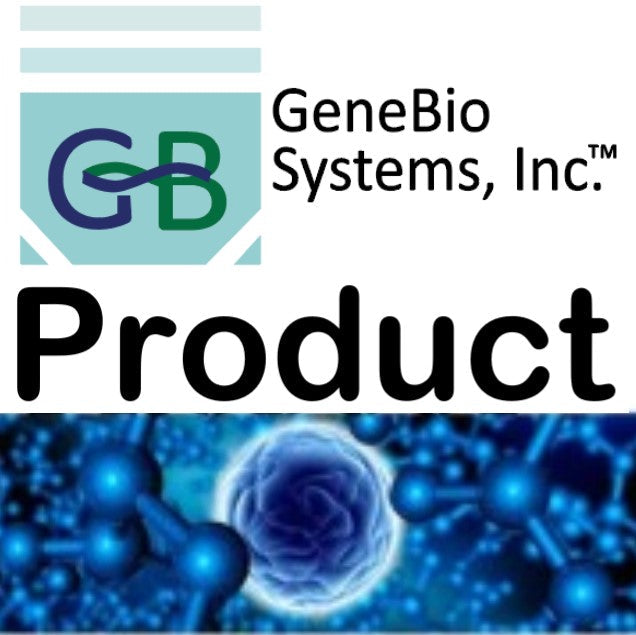Gene Bio Systems
Recombinant Staphylococcus aureus Iron-regulated surface determinant protein A(isdA)
Recombinant Staphylococcus aureus Iron-regulated surface determinant protein A(isdA)
SKU:CSB-EP763937SKW
Couldn't load pickup availability
Size: 200ug. Other sizes are also available. Please Inquire.
In Stock: No
Lead time: 10-20 working days
Research Topic: Others
Uniprot ID: Q6GA85
Gene Names: isdA
Organism: Staphylococcus aureus (strain MSSA476)
AA Sequence: ATEATNATNNQSTQVSQATSQPINFQVQKDGSSEKSHMDDYMQHPGKVIKQNNKYYFQTVLNNASFWKEYKFYNANNQELATTVVNDNKKADTRTINVAVEPGYKSLTTKVHIVVPQINYNHRYTTHLEFEKAIPTLADAAKPNNVKPVQPKPAQPKTPTEQTKPVQPKVEKVKPTVTTTSKVEDNHSTKVVSTDTTKDQTKTQTAHTVKTAQTAQEQNKVQTPVKDVATAKSESNNQAVSDNKSQQTNKVTKHNETPKQASKAKELPKT
Expression Region: 47-316aa
Sequence Info: Full Length of Mature Protein
Source: E.coli
Tag Info: N-terminal 10xHis-tagged and C-terminal Myc-tagged
MW: 35.1 kDa
Alternative Name(s): Fur-regulated protein A Staphylococcal transferrin-binding protein A frpA, stbA
Relevance: Transfers its hemin to hemin-free IsdC (apo-IsdC) directly probably through the activated holo-IsdA-apo-IsdC complex and driven by the higher affinity of apo-IsdC for the cofactor. The reaction is reversible. Binds transferrin, lactoferrin, heme, hemoglobin, hemin, fetuin, asialofetuin and protein A. Also binds fibronectin and chains B-beta and gamma of fibrinogen. Could play a role in the removal of heme from hemoglobin. The IsdA-mediated iron-acquisition system from transferrin could play only an ancillary role in the iron uptake whereas the siderophore-mediated iron-acquisition system from transferrin seems to play an essential or dominant role. May function as a reservoir for heme. Involved in adherence of S.aureus to human desquamated nasal epithelial cells and is required for nasal colonization. Protects S.aureus against the bactericidal protease activity of apolactoferrin in vitro and confers resistance to bovine lactoferricin. Also IsdA and/or IsdB promote resistance to hydrogen peroxide and killing by neutrophils
Reference: "Complete genomes of two clinical Staphylococcus aureus strains: evidence for the rapid evolution of virulence and drug resistance." Holden M.T.G., Feil E.J., Lindsay J.A., Peacock S.J., Day N.P.J., Enright M.C., Foster T.J., Moore C.E., Hurst L., Atkin R., Barron A., Bason N., Bentley S.D., Chillingworth C., Chillingworth T., Churcher C., Clark L., Corton C.Parkhill J. Proc. Natl. Acad. Sci. U.S.A. 101:9786-9791(2004)
Purity: Greater than 85% as determined by SDS-PAGE.
Storage Buffer: Tris-based buffer,50% glycerol
Storage: The shelf life is related to many factors, storage state, buffer ingredients, storage temperature and the stability of the protein itself. Generally, the shelf life of liquid form is 6 months at -20℃/-80℃. The shelf life of lyophilized form is 12 months at -20℃/-80℃.
Notes: Repeated freezing and thawing is not recommended. Store working aliquots at 4℃ for up to one week.


